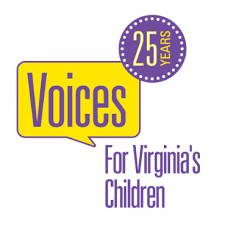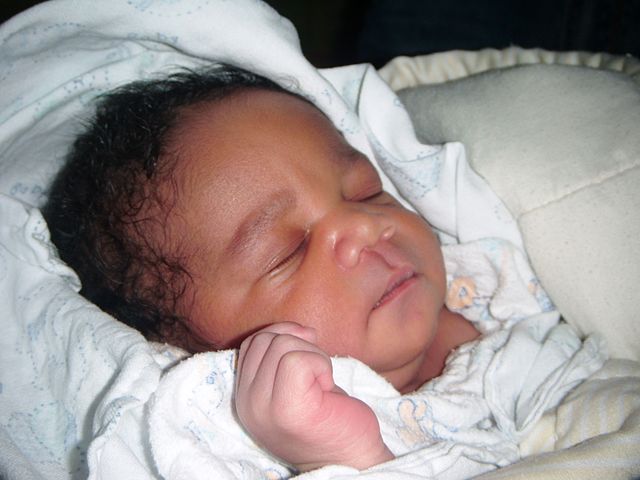New Report Ranks Virginia Near the Bottom for State of Babies
“State of Babies Yearbook: 2021” shows growing disparities for young children and their families due to COVID-19 pandemic
New data released in the State of Babies Yearbook: 2021 shows that Virginia ranks in the second-to-last tier for babies. Voices for Virginia’s Children – the commonwealth’s leading policy and advocacy organization for children – joins the report’s author, ZERO TO THREE, in calling for a major investment and greater policy interventions to support babies in Virginia.
The research compiles 60 indicators that affect the well-being of children ages zero to three and provides an in-depth look at national and state-by-state progress across three policy areas: Good Health, Strong Families and Positive Early Learning Experiences.
All 50 states and the District of Columbia are categorized in the following four tiers, from highest to lowest-performing:
- Working Effectively
- Improving Outcomes
- Reaching Forward
- Getting Started
Virginia is among 13 states and the District of Columbia to earn a Reaching Forward ranking. The State of Babies Yearbook: 2021 shows that the littlest Virginians face big challenges, and that the policies and programs at the state level can make a difference in their ability to reach their full potential. The Yearbook highlights areas where Virginia can do better for its babies.
Virginia is home to 299,132 babies, representing 3.5% of the state’s population. As many as 31.7% live in households with incomes less than twice the federal poverty line, placing them at an economic disadvantage. Yet, only 2% of public funds for child care are directed to babies and toddlers. The report shows that children and families of color face numerous challenges as a result of racism, and is exacerbated even more for children and families living in households with low income. Policies that address paid sick and family leave, stable housing, home visiting services and tax credits will help close the gaps.
The State of Babies Yearbook: 2021 comes at a critical time in our nation’s response to the ongoing public health crisis and resulting economic fallout. Though the pandemic itself was unexpected, our longstanding failure to support families with young children – particularly Black and Brown families and those with low income – reinforced challenges throughout the pandemic for those who were already facing barriers due to longstanding disparities and a lack of equity; ultimately causing disproportionate harm.
Prior to COVID-19, 10.1% of babies in Virginia lived in crowded housing. The rate is nearly double for Latino babies at 20.9% and also high for Black babies at 13.3%. The report also shows that before COVID-19, 8.2% of babies in Virginia were born at a low birth weight. 13.4% of Black babies were born with low birth weight.
“It has never been more important to tell the story of Virginia’s babies. Even before the COVID-19 pandemic, the littlest among us did not have what they needed to thrive,” said Myra Jones-Taylor, Chief Policy Officer of ZERO TO THREE. “We did not need a crystal ball to know that the pandemic would have lasting effects on children, their families, the state of Virginia, and our nation. As advocates for babies, we must push for those permanent policies that we know will address the barriers our children face.”

“Babies in Virginia are being left behind in policy decisions,” said Emily Griffey, chief policy officer at Voices for Virginia’s Children. “Policies like the state expansion of paid family medical leave and paid sick days for all workers – which would benefit infants, toddlers, and their families – have failed to advance in Virginia.”
“Recent policy changes from this year’s General Assembly session will start to move the needle by helping more families afford child care and extending health insurance coverage,” Griffey added. “But Virginia can do so much more to help babies.”
“Babies are seldomly top of mind for elected officials, but it’s time to elevate this priority,” said Amy Strite, CEO of Voices for Virginia’s Children. “In particular, 48% of babies in Virginia are children of color, yet we see gaps in access to care, education and supports. It is past time for our leaders to begin prioritizing policies that will put babies on an equitable path of opportunity and success. Children who thrive and become successful adults have a solid foundation as babies, including economic stability, parent support, and early learning opportunities.”
Decisions that affect babies and families happen at all levels of government. Voices for Virginia’s Children has joined ZERO TO THREE and nearly 70 other national and state organizations to amplify the Think Babies message nationally and elevate the importance of the first three years in Virginia. On May 18, Voices will join families and babies from all 50 states and D.C. to urge Congress to boldly invest in our future as part of the national Strolling ThunderTM event.
To access the national profile and state data, visit stateofbabies.org.


